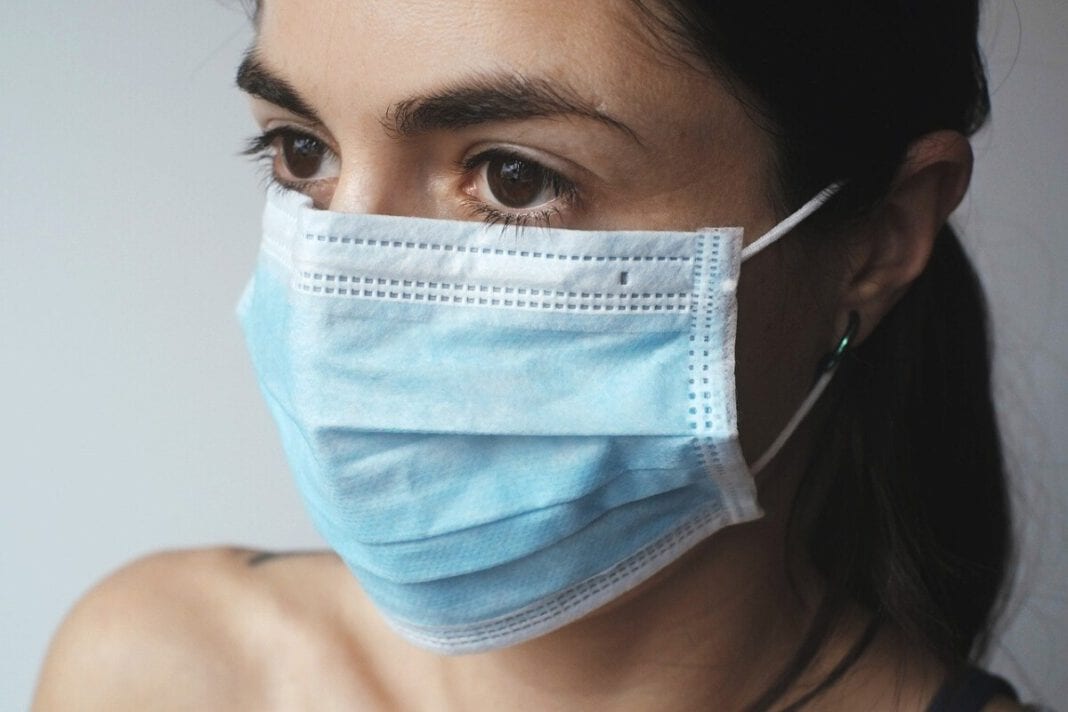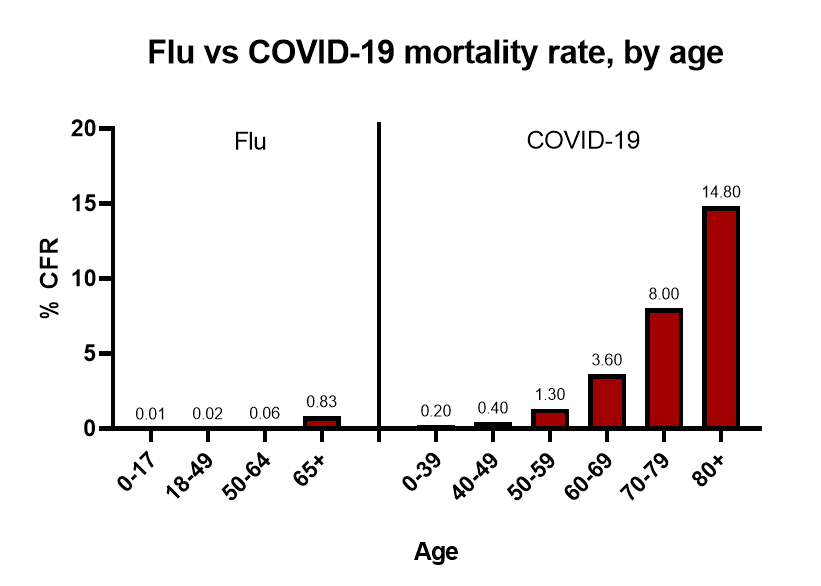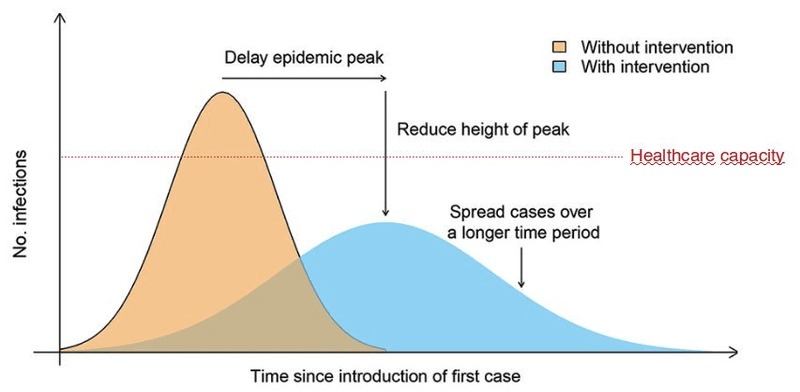In the midst of all the information surrounding the new coronavirus, it’s easy to give in to two types of reaction: panic or carelessness.
Neither of them is optimal nor provides appropriate protection. As an Italian expat professionally working on viruses and keeping an eye on the situation back home, I feel the need to keep the discussion in the Netherlands scientific.
Is this virus considerably worse than the flu?
Yes.
While this is not one of the most dangerous viruses to ever exist, the latest (global, which means mainly China) estimates suggest a case fatality rate (CFR) of about 3.4 percent. Since the usual flu causes around 0.1% mortality, there’s more than 30 fold increase with this new virus.
The danger of comparing it to the flu lies also in the fact that we’ve all encountered the influenza virus in our lives and are equipped with pre-existing immunity against it, not to mention vaccines, treatments and data.
Does that mean that we’re all gonna die?
No.
While the mortality rate is not dismissable, it’s not as high as in epidemics such as Ebola, SARS and MERS (these last two were also caused by coronaviruses).
Furthermore, the calculated CFR is an average of many age groups; young healthy people seem to be in relatively small danger.
These numbers can vary a lot in different countries, due to the quality of care as well as the age of the population. For example, a country like Italy has good healthcare (especially in the North, where the outbreak started) but has a relatively old population – that often lives together with their young relatives – so the CFR there is about 3.1 percent.
Keep in mind that these numbers are likely to change as more asymptomatic cases are discovered; we probably won’t have the real CFR well after the epidemic has passed and studies of antibodies can be performed.
So it’s all fine?
Again, no.
The mortality rate of a disease is only one of the various factors contributing to its gravity. Looking at a Western world country like Italy, it’s obvious that while the virus itself isn’t decimating the population, it is putting its healthcare system under some serious strain.
Several hospitals have been completely converted to treat solely virus-infected patients; doctors and nurses have been working overtime, many of them with no shift to replace them for two weeks now (so barely going home, some not at all).
Additionally, while it is true that COVID-19 has not such high mortality and that most people develop a mild form of the disease, 10 percent of them (in Italy) need to be placed in the ICU. This means a reduction of the number of beds available in intensive care for all the other types of patients that do not disappear just because there is a new virus in town.
Are preventive measures being put in place in the Netherlands to prevent the virus from further spreading?
In the opinion of several experts, the virus will continue to spread to many other countries, and cases across the Netherlands will also rise. What will determine if the cases will peak all at the same time – and cause vast disruption to hospitals, transports, schools, etc – is whether appropriate measures to contain it (or at least slow its course) will be put in place.
In my opinion, looking at the massive impact this epidemic is having on my country, the Netherlands has missed an opportunity in the past weeks by not issuing (serious) travel advice against unnecessarily visiting infected areas. Up until yesterday, the north of Italy had only code yellow (which is the code given at all times to places such as Thailand). Only yesterday, this was changed to code orange. In the meantime, people returning from their holiday in Lombardy back to the low lands have been confirmed positive.
Furthermore, the present indication to doctors on whether they are allowed to request testing is only when severe symptoms are present, even when they have been in contact with confirmed infected patients. Given that the working theory (proposed by many peer-reviewed scientific articles) suggests that also people with very mild symptoms can be infectious, you can see how this would not stop the chain of infections (particularly if the infected person continues working in, say, a hospital).
Halting major events would also seem like the most logical choice; however, both the government and the population appear satisfied with a relaxed approach, even though that same (initial) approach is leading to a critical situation within the same continent.
This can, of course, be proven unnecessary in due time. However, in some cases (nuclear energy, infectious diseases, space travel to mention a few) it has been shown time and again that it is better to err on the side of caution until new reassuring information is confirmed; applying a normalcy bias at the beginning of an epidemic can prove to be naïve and even dangerous in the long run.
So what can you do about coronavirus in the Netherlands?
First of all don’t panic or fall into the train of collective hysteria.
Second of all, wash your hands. Frequently, particularly if you have touched any metal surface, where the virus can survive longer. As students of preventive medicine learn on their very first class, 98 percent of known microbes are destroyed with water and soap — and COVID-19 is no exception.
However – and this is important – most people do not wash their hands properly; it is necessary to wash for an appropriate amount of time (about the length of two “happy birthday” songs) and to really scrub with soap around your fingers. Also, make sure that you’re drying them correctly – a shared towel at your work space is a no-go, better use paper towels.
And finally, if you are sick: don’t go to the GP, but call; keep yourself and others healthy by allowing your body to rest and recover at home – that is, of course, if your symptoms are mild and don’t require hospitalization.
How are you feeling about the spread of coronavirus in the Netherlands? Tell us your story in the comments below.
Feature Image: Coyot/Pixabay






Why not use the same x-axis for the CFR of the flu and the COVID-19? Super misleading.
Because (as you can see) there are different age groups, to see clearly who is the most affected.
I have RT tickets to AMS for March 19 -30.
Airbnb in Utrecht. I want to come. Will I be able to go Museums ? The Kukenhof f ? I a very healthy 61 yr old
What to do ?
Hi Paula,
I don’t know where you’re from but things are changing pretty fast around here. So far the things you’ve mentioned are open. But in a week that may not be the case. If I were you I’d try to reschedule, also because if you were here and a lockdown occurred, it would get really difficult really fast to get home (personal experience).
Could you provide a specific source for the CDC’s flu CFR data? It’s definitely correct in terms of being in line with commonly published numbers but I can’t find these numbers specifically.
Excellent article
Thanks